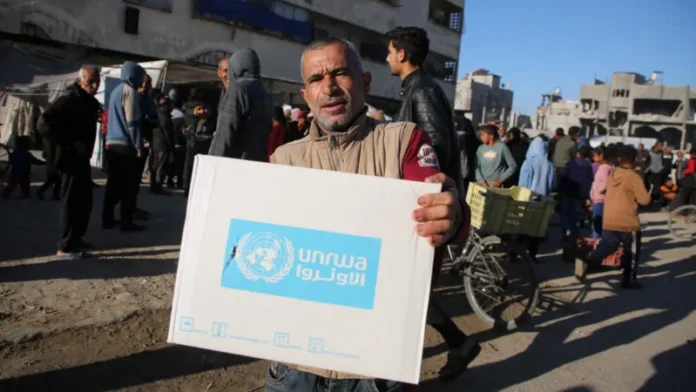The International Court of Justice (ICJ) has declared that Israel has a legal obligation to facilitate the delivery of humanitarian aid to the Gaza Strip, ensuring the basic needs of Palestinian civilians are met.
In a landmark advisory opinion issued on Wednesday, the UN’s top court also dismissed Israel’s claims that the UN Relief and Works Agency for Palestine Refugees (UNRWA) lacked neutrality or that a significant number of its staff were members of Hamas or other militant groups.
UN Secretary-General António Guterres welcomed the ICJ’s decision, calling it a “very important ruling” and expressing hope that Israel would comply with international law. “Humanitarian principles must prevail above all political differences,” Guterres said in a statement from New York.
However, Israel quickly rejected the ICJ’s opinion, labelling it “political” and reiterating its refusal to cooperate with UNRWA. The Israeli government has maintained a ban on the agency’s activities, accusing it of bias and alleged ties to militant organizations.
Although the ICJ’s opinion is not legally binding, it carries significant moral and diplomatic influence. The ruling could heighten pressure on Israel from the international community to allow unhindered humanitarian access to Gaza, where more than 2.1 million people have been affected by shortages of food, water, and medicine.
The UN General Assembly had requested the ICJ’s opinion in December, seeking clarification on Israel’s obligations as an occupying power and UN member toward international organizations operating in Gaza and the occupied West Bank, including East Jerusalem.
The request followed the passage of Israeli legislation banning UNRWA operations within Israeli territory and prohibiting contact with Israeli officials.
In its opinion, the court said Israel was required under international humanitarian law to allow the entry of essential supplies to Palestinian civilians and to enable the UN and its agencies to perform their mandates.
Israel has maintained a strict blockade over Gaza since its war with Hamas began two years ago, often restricting or halting aid deliveries. The court noted that these actions had deepened the humanitarian crisis in the enclave.
Before a ceasefire was reached earlier this month, UN-backed experts warned that over 640,000 Gazans were experiencing catastrophic levels of food insecurity. The experts described the crisis as an “entirely man-made famine,” particularly severe in Gaza City and the north of the strip.
Israel has denied those assessments, asserting that it has allowed sufficient aid to enter Gaza through controlled crossings. It also claims that Hamas has diverted supplies meant for civilians.
The ICJ’s decision, though advisory, underscores the growing international consensus on Israel’s responsibilities under international law. It may influence future UN resolutions and diplomatic initiatives aimed at ensuring the delivery of humanitarian assistance in Gaza, where conditions remain dire despite the temporary truce.

